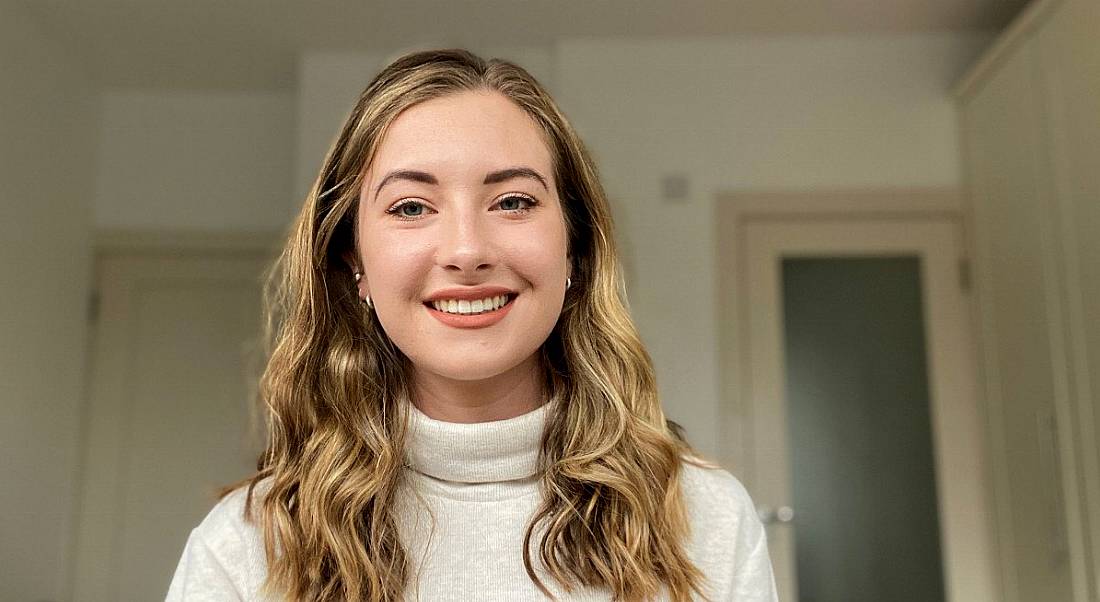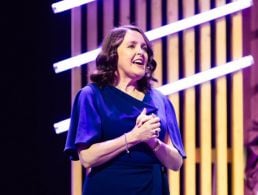Harriet O’Connor explains why she decided on a career in data analytics and how Accenture has been helping her get started.
Harriet O’Connor studied financial mathematics at UCD and wanted a chance to solve real-world problems in her career. After meeting Accenture employees at career fairs, she decided that analytics and technology consulting were right for her and applied for the company’s analytics graduate programme.
Here, she talks about the work she’s been doing on the programme so far and why she would recommend it.
‘My day-to-day is exactly what I wanted when I started in Accenture’
– HARRIET O’CONNOR
What drew you to Accenture when you were seeking work as a graduate?
Maths has always been my favourite subject and I love problem solving. I knew when I started thinking about my career after university that I wanted to work in a company which would provide me with the opportunity to use my analytical skills to solve real-world problems. I also have a particular interest in data science, and this is what led me to investigate working in technology consulting and data analytics.
As a technology-driven company, I knew Accenture would be a great place to gain experience and to further develop my coding and analytical skills. What really set Accenture apart for me were the conversations I had with those representing the analytics practice at the career fairs.
Aside from the really interesting work they were doing, it was apparent that the community within analytics, known as applied intelligence in Accenture, was really close and tight knit, which I think is really important.
What expectations did you have before you began the programme?
I probably expected it to be coding all the time and I forgot about the business elements of the job. I was pleasantly surprised by this though; it’s interesting to see how consulting works from the ground up. Storytelling, for example, is also a huge aspect of the job – how you present your findings to the client in a way that it’s digestible and resonates with them.
What duties and responsibilities were you given initially?
Initially I was given the opportunity to upskill and further develop my coding skills before joining the team for a short, month-long project. This allowed me to experience the whole project life cycle from start to finish, giving me a great insight into how consulting works.
From there, I joined a longer-term project team and have been given duties and responsibilities which involve me dealing directly with our client as well as senior management and leadership within Accenture.
Has the scope of your work changed as the programme progressed?
Yes, the project I am currently on involves me spending most of my day coding and I would say my day-to-day is exactly what I wanted when I started in Accenture. However, there is definitely a range in how technical a project can be.
Before this project, I was involved in the building of a demand-and-capacity model for a health and public service client, but it just wasn’t technical enough for me. I expressed my interest in getting on a project which involved more coding, and that’s exactly what I got.
Can you describe a typical day in your role?
I am currently working on a compliance project where my role is to support the running of our rules and predictive models to produce intelligent reporting. We are continuously looking at ways to further enhance and optimise these models, as well as responding to general reporting requests.
As we are always striving to improve our solution, no two days in my role are ever the same. From identifying opportunities to analysing our results, I always feel that I’m developing and being challenged.
How do your responsibilities compare to more experienced employees’?
I have never felt like there is a huge dividing hierarchy within Accenture; everyone works together as a team. While I have learned so much from those who are more experienced than I am, I have never felt that I am treated any less than they are.
I have been trusted with quite a lot of responsibility but have never felt in over my head. If I have an issue, there is always someone who can help. We are all equals working towards a common goal.
Do you feel more prepared for working life after entering this programme?
Yes, definitely. Within this graduate programme, I have liaised with a number of different stakeholders and have worked with them to achieve their goals. The exposure to more senior people has prepared me well for working life.
Why should someone apply to the analytics graduate programme at Accenture?
If you are interested in data science and want to help clients to improve their business models using analytics, while also having the opportunity to further develop your own skillset, then this is the graduate programme for you.
There’s more information on applying for the analytics graduate programme here. Applications close on 16 October 2020.




